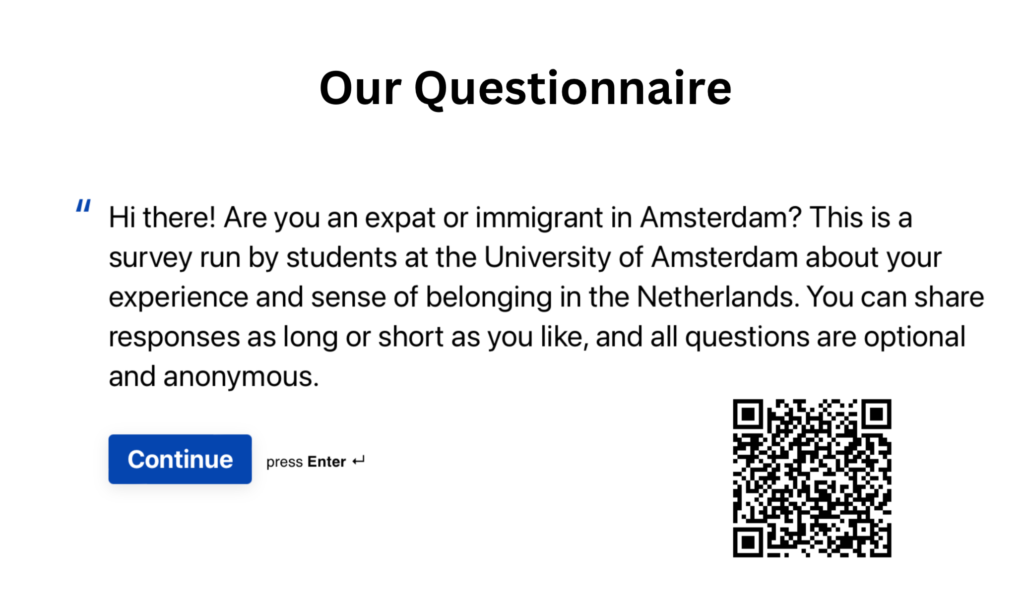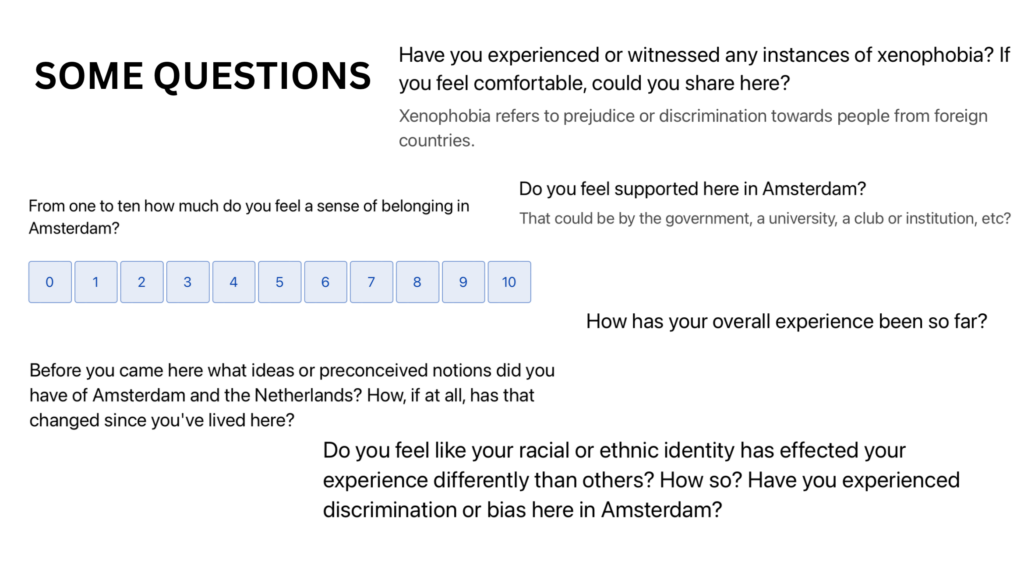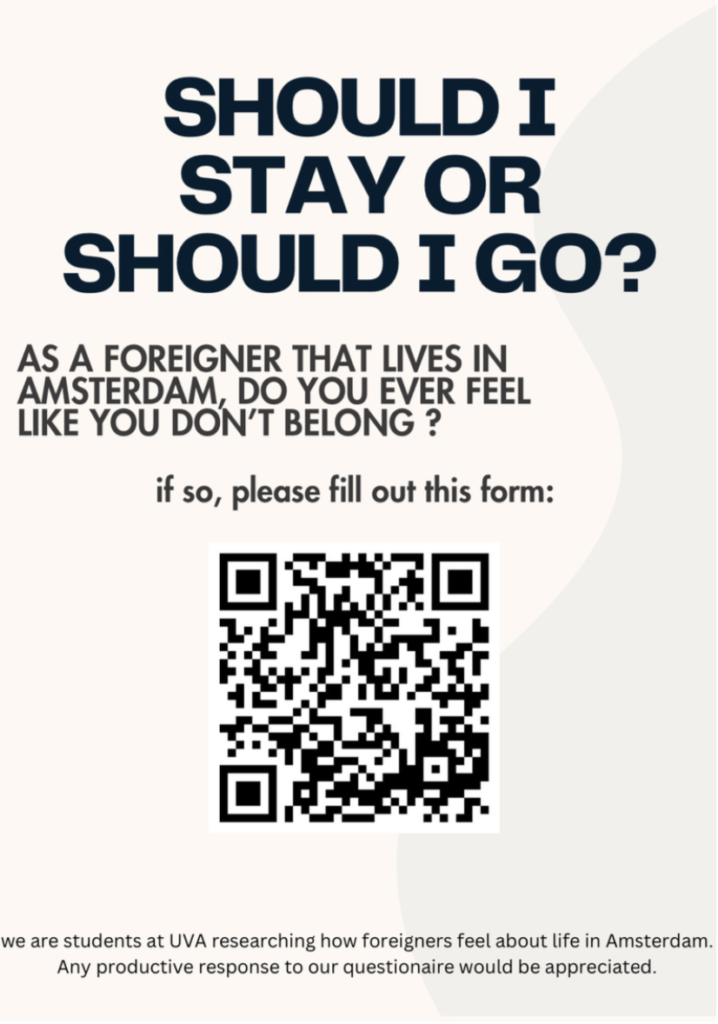
Who is truly welcome in the city of Amsterdam? The city has a reputation of a very liberal and open community, but does that reflect in the lived experience of expats and immigrants?
Who is truly welcome in the city of Amsterdam? The city has a reputation of a very liberal and open community, but does that reflect in the lived experience of expats and immigrants? And how is that experience different for people of different racial and ethnic backgrounds? Who feels a sense of belonging and home?

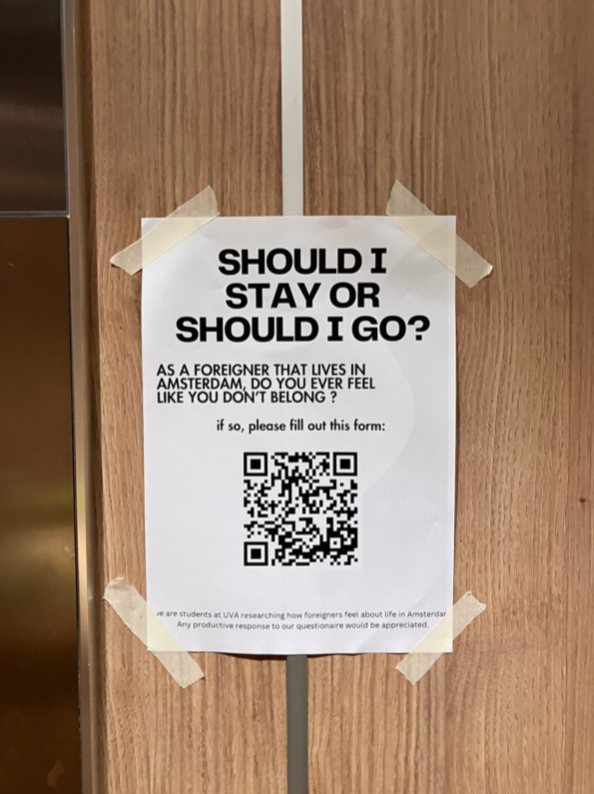
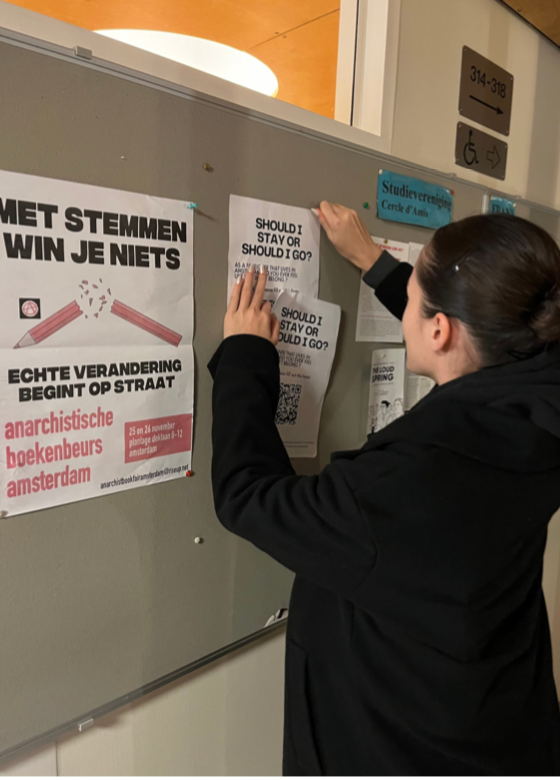
National identity functions as a form of imaginative identification with symbols and discourses of a nation-state (e.g., the Netherlands as a cultural catalyst in Europe and beyond) (Barker and Jane, 301). Nonetheless, cultures are not static and, thus, is understood and acted. According to Stuart Hall, national identity is best viewed as a way to unify cultural diversity (i.e., “national cultures function as discursive devices which represent difference as unity or identity”) (Barker and Jane, 302). How does cultural homogeneity as a concept stand within a culture built on creolization and hybridity (esp. through colonialism and its aftermath)?
In the Netherlands, we hear calls for cultural homogeneity and concerns that the Dutch culture is under attack. Geert Wilders preach for Dutch culture to come first, while denouncing Islam as “an ideology of a r… culture” and calling Moroccans “scum”, mentioning that “indigenous people are being ignored because of the mass immigration… they feel mistreated”. We see discourses of national identity being related to ones of moral and intellectual superiority.
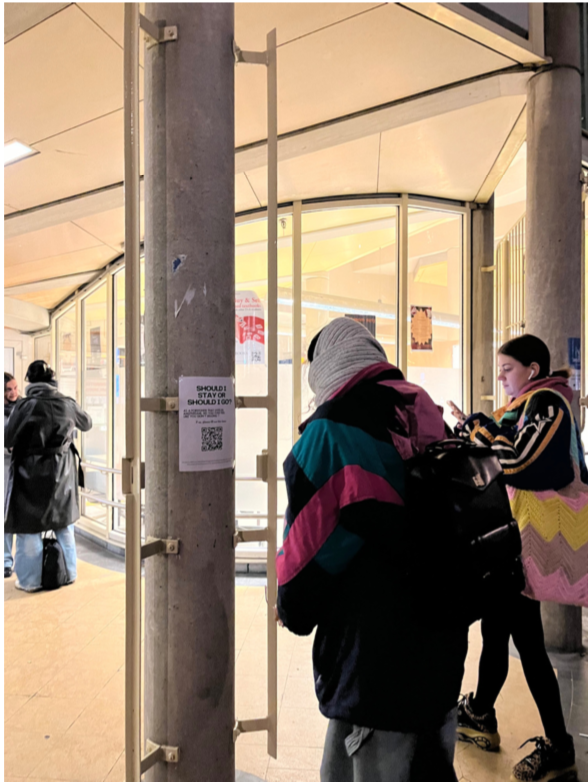
As a result of the survey we did, it turns out that 40% of our survey participants felt unsupported within Amsterdam and over 50% experienced xenophobia.
